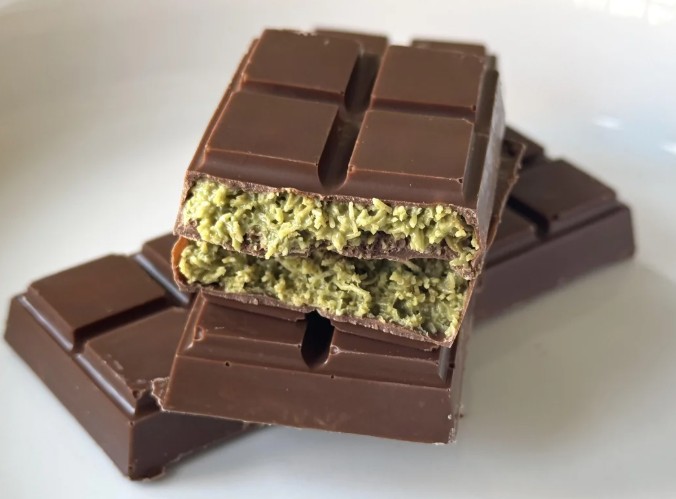A trendy treat has taken a dangerous turn.
The Food Standards Agency (FSA) has issued a critical recall of the “Noesis Schokolade Love of Dubai” bar after discovering it contains undeclared peanuts, posing a serious risk to allergy sufferers.
The recall centres on a bar inspired by the wildly popular Dubai chocolate bar trend, which went viral on TikTok. Known for its rich, pistachio-filled centre, the treat captivated sweet lovers across the UK. But now, food safety chiefs warn it could be life-threatening.
The issue? Peanuts are not listed on the label, yet found in the product. That oversight puts thousands of people at risk.
Despite attempts to contact the maker, Black Sea Trading Ltd, officials say they’ve had no response. As a result, the watchdog is urging shops and online distributors to pull the bars immediately.
The FSA released a strong warning: “Don’t buy this product, and if you have bought it, don’t eat it, especially if you have a peanut allergy.
Dispose of the product at home and get in touch with your local Trading Standards in Great Britain or Environmental Health Officers in Northern Ireland, to let them know where you purchased it.”
The Love of Dubai bar has become a viral phenomenon since 2024. It gained massive traction thanks to social media buzz—primarily TikTok—fuelled by its indulgent pistachio cream and luxury look.
So much so, it’s been blamed for a global spike in pistachio prices, soaring from $7.65 to $10.30 a pound. But the boom in Dubai-inspired sweets has come with risks.
Just last week, the FSA flagged concerns over a wave of imported chocolate bars entering the UK without proper allergen labelling or ingredient checks. Some were found to include additives banned in Britain.
Professor Robin May, chief scientific adviser to the FSA, weighed in: “The vast majority of food in the UK is safe, but some imported Dubai-style chocolate products don’t meet our standards and could be a food safety risk, especially for consumers with allergies.”
“If you are looking to buy Dubai-style chocolate, we advise sticking with trusted retailers, like the ones you’d use for your weekly shop, as products are more likely to be made for UK consumers and so are safe to eat.”
The agency is now working with allergy charities and conducting nationwide sampling to understand the scale of the issue.
For now, sweet lovers are urged to stay cautious. That luxury bite might not be worth the risk.






